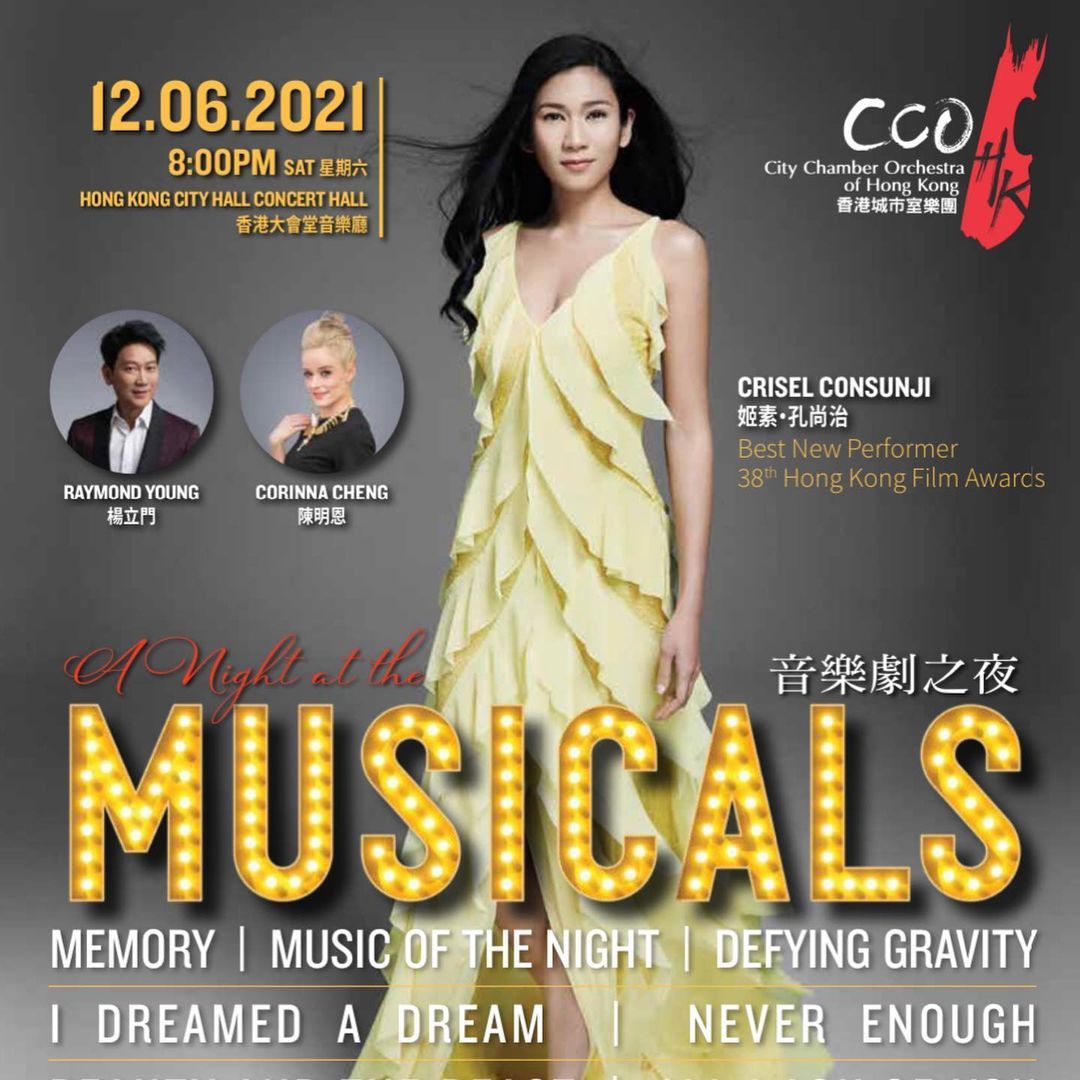After winning Best New Performer at the 38th Hong Kong Film Awards for her role in 'Still Human', Filipino actress Crisel Consunji talks to Tatler about where she is now including her recent musical theatre comeback performance
Crisel Consunji seems to have the word "performer" branded in her. The Filipino actress has been doing theatre since she was 10 and although she studied political science at one of the Philippines' top universities, performing has always been her passion, having been trained and performing professionally with Repertory Philippines, a theatre company.
Consunji moved to Hong Kong in 2008 to work as a performer at Hong Kong Disneyland, taking on lead vocalist roles for High School Musical and The Golden Mickeys but her big break came when she nabbed the lead role for the Hong Kong film, Still Human alongside Hong Kong veteran actor, Anthony Wong. Her acting debut as Evelyn Santos landed her not only a nomination but a win for Best New Performer at the 38th Hong Kong Film Awards—the first Filipino to be nominated and win in the category. She also made history as the first Filipino to be nominated for Best Actress at the same award show.
After recently headlining A Night at the Musicals at the Hong Kong City Hall, Consunji sits down with Tatler on life after her historic win, ethnic minority representation in Hong Kong media and her commitment to early childhood education.
See also: Chloe Zhao Wins Best Director—Here's 5 Things To Know About Her

Can you tell us more about the musical event that you performed in?
[It's] A Night at the Musicals with the City Chamber Orchestra of Hong Kong, under Chief Conductor Vahan Mardirossian, together with singers Raymond Young and Corinna Cheng. It [was on] June 12 at the City Hall! We’ll be singing well-loved songs from popular musicals.
What was so exciting about the event?
It’s a concert about musicals—doesn’t the thought even want to make you hum a tune and tap your feet? I [was] personally excited because I haven’t performed for an audience this big for more than a decade. What a way to jump back in.
How did you prepare for your performance?
Here’s the thing—this show was originally supposed to be headlined by Lisa Jane Kelsey, a singer from London’s West End. I was invited to be a guest, to sing a few duets with her. However, Leanne Nicholls, the artistic director, finally gave up on flying her over in April due to quarantine issues and asked me if I was ready to headline the concert and sing the lead role. Of course, I said yes.
So the past couple of weeks have been a lot of work. As some may know, I have Baumhaus & Kindermusik Hong Kong to run and until one week before the show, I was managing my team and teaching classes for five hours a day. That left me a few hours in the evening to re-learn songs, memorise lyrics and check my vocal placement. So during breaks and while travelling to work, I’d be studying my music sheets, figuring out entrances and tempo.
See also: Chinese Piano Prodigy Niu Niu Reveals How Music Isn't Just About Making A Mark But A Difference






